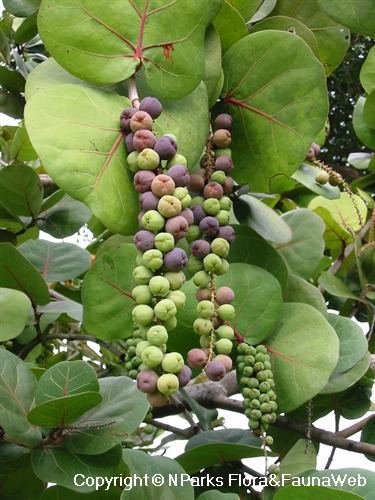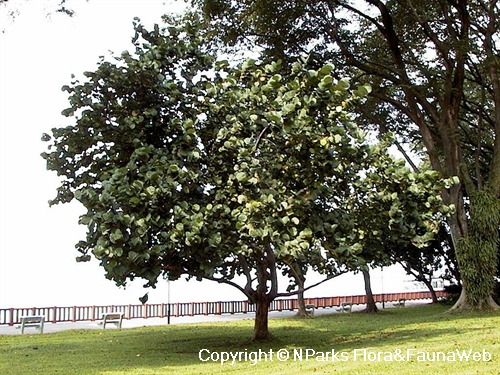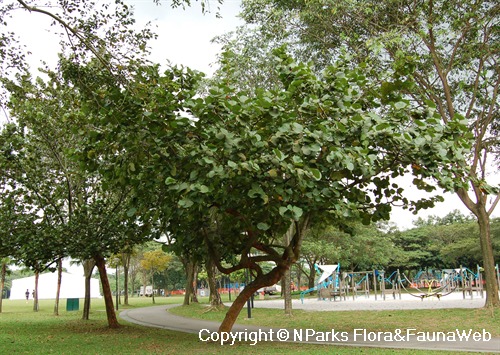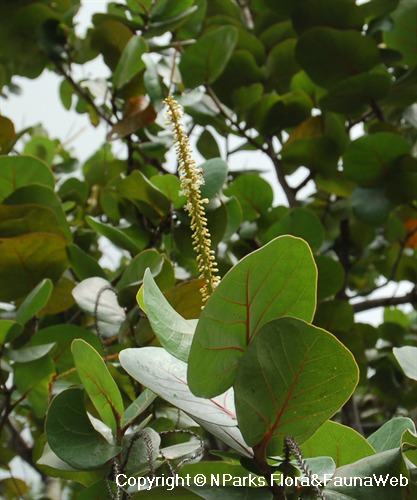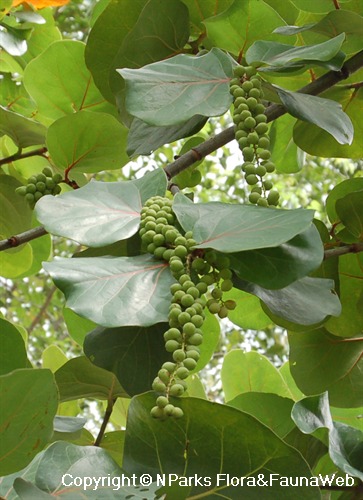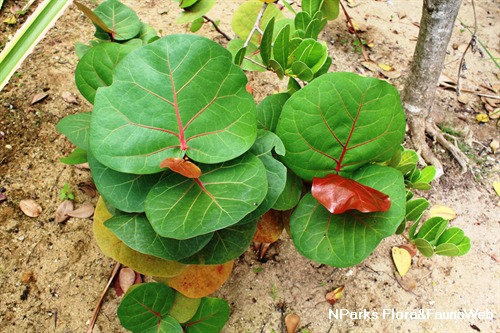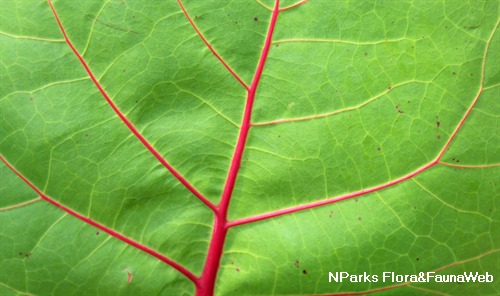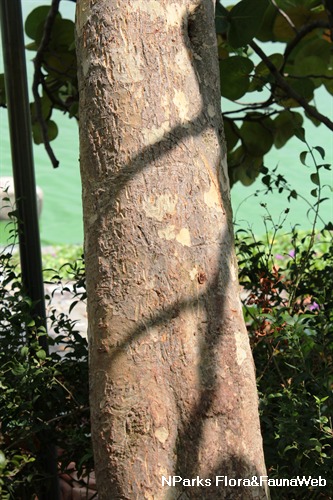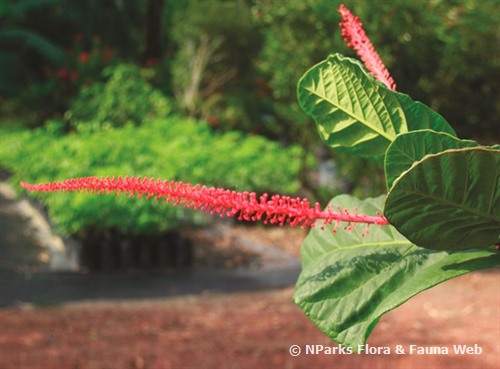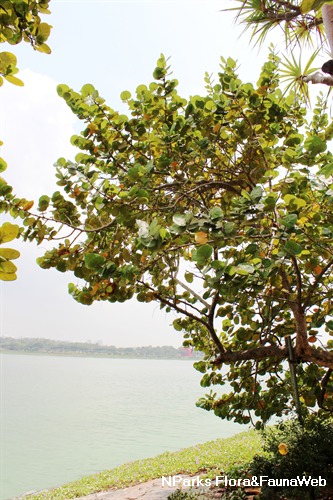
Back
Coccoloba uvifera (L.) L.
| Family Name: | Polygonaceae |
| Synonyms: | Polygonum uvifera L. |
| Common Name: | Sea Grape, Jamaican Kino, Platter Leaf |
Name
Classifications and Characteristics
| Plant Growth Form | Tree (Small (6m-15m)) |
|---|---|
| Maximum Height | 15 m |
Biogeography
| Native Distribution | Tropical America |
|---|
Description and Ethnobotany
| Growth Form | Large evergreen shrub with a sprawling growth habit when it grows near the coast. It forms a small to medium-sized tree when planted away from the coast. Coastal environments tend to be very windy and the soil is typically drier and nutrient poor. These conditions cause the Sea Grape to be smaller near the coast. |
|---|---|
| Trunk | Trunk is typically short or indistinct. |
| Foliage | Large, round leaves (20 cm wide) often have red veins. The leaf base is cordate (heart-shaped). |
| Flowers | Small, white flowers are arranged in spike inflorescences that are 15 - 25 cm long. |
| Fruit | Round, berry-like fruits (2 cm wide) are tightly packed in long hanging chains. Purplish, fleshy fruits are pitted. |
| Habitat | Occurs on beaches and sand dunes. |
| Cultivation | Established plants are drought tolerant. Propagate by seed or ground layering. |
| Ethnobotanical Uses | Edible Plant Parts : Edible Fruits Food (Fruit or Vegetable): The fruits are edible, but not widely consumed. |
Landscaping Features
| Landscape Uses | Coastal Plant, Beachfront / Shoreline |
|---|
Fauna, Pollination and Dispersal
| Fauna Pollination Dispersal Associated Fauna | Bird-Attracting Plant |
|---|
Plant Care and Propagation
| Light Preference | Full Sun |
|---|---|
| Water Preference | Moderate Water |
| Plant Growth Rate | Moderate |
Foliar
| Mature Foliage Colour(s) | Green |
|---|---|
| Leaf Area Index (LAI) for Green Plot Ratio | 3.0 (Tree - Intermediate Canopy) |
Image Repository
Others
| Master ID | 1524 |
|---|---|
| Species ID | 2817 |
| Flora Disclaimer | The information in this website has been compiled from reliable sources, such as reference works on medicinal plants. It is not a substitute for medical advice or treatment and NParks does not purport to provide any medical advice. Readers should always consult his/her physician before using or consuming a plant for medicinal purposes. |

